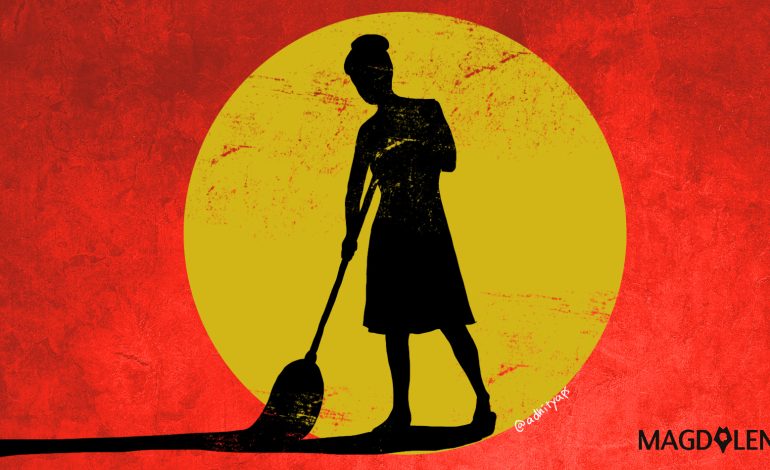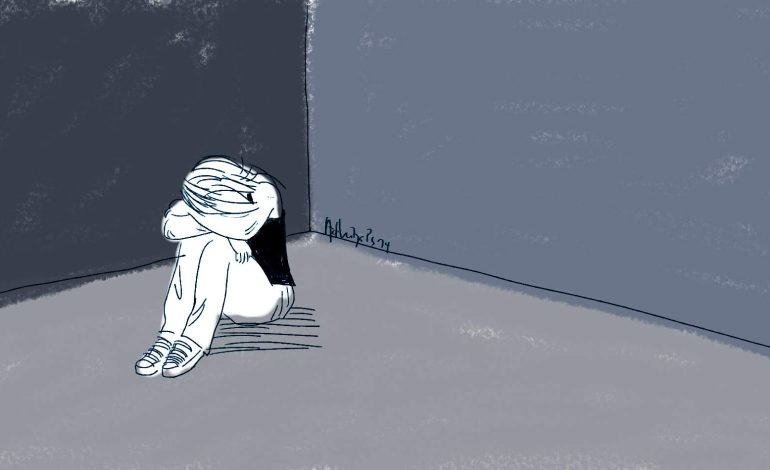New Book Reveal Legal Cases of Unprotected Domestic Workers

For more than seven years, Marni Siti* (not her real name), a 22 years old domestic worker, was a prisoner in her former employer’s house. She was physical abused, often left without food or rest, and never paid her for the long and tiring working hours. Eventually Marni managed to escape. With wounds all over her body, she reported her employer to the police February 2016.
Marni’s case is one of the many legal cases involving adult and child domestic workers in Indonesia that were documented in a newly published book. The Legal Cases Compilation of Indonesian Domestic Workers and Child Domestic Workers was published by the non-profit organization National Network of Domestic Workers Advocacy (Jala PRT) with the support of the International Labor Organization (ILO).
Launch on Friday (Jun. 6) in Jakarta the book was an initiative of Jala PRT in cooperation with Legal Aid Institute of the Indonesian Women for Justice Association (LBH APIK) and LBH Jakarta in conjunction with the 6th International Day of Domestic Workers Day 2017.
“Domestic workers have the same legal rights at work as well as employees and other professions,” said Michiko Miyamoto, Director of ILO Indonesia. “The publication of these domestic workers’ cases is important in meeting the legal needs of domestic workers and ensuring their rights as workers.”
The book documented and analyzed 24 cases of domestic workers divided into three types of cases: employment (15 cases), criminalization (four cases) and criminal (five cases).
Employment cases include unfair work termination caused by illness or pregnancy, the absence of employment contracts, and termination of employment without severance and social security benefit. Criminalization cases include false accusations and torture. And criminal cases include domestic workers who were victims of human trafficking and domestic violence.
The  book is expected to be used by domestic workers, legal aid organizations and law enforcement officers to ensure better protection for the workers. Jala PRT, LBH Jakarta, and LBH APIK Jakarta with the support of the International Labor Organization (ILO) work together to strengthen the capacity of domestic workers organizations to improve access to justice for domestic workers and child domestic workers through case assistance.
book is expected to be used by domestic workers, legal aid organizations and law enforcement officers to ensure better protection for the workers. Jala PRT, LBH Jakarta, and LBH APIK Jakarta with the support of the International Labor Organization (ILO) work together to strengthen the capacity of domestic workers organizations to improve access to justice for domestic workers and child domestic workers through case assistance.
“Domestic workers have an important role, but they are still not recognized as workers. Their employment relationships have not been regulated in regulations on labor and workers, which mean they receive no protection,” said Lita Anggraini, the National Coordinator of Jala PRT.
“We are in dire need of special legislation on domestic workers to provide better legal protection and stop abusive and arbitrary treatment of domestic workers,” Lita added.
Domestic workers represent the largest group of women workers working in households, both in the country and overseas. ILO estimates there are 2.6 million domestic workers in Indonesia; including 110 thousand children under the age of 18.

Ludiah, a former domestic worker who is now an active member of the domestic workers union PRT Sapu Lidi, told her story of being fired when she was sick. She did not get paid at all. She finally decided to report her case to LBH Jakarta.
“With help from LBH Jakarta, I eventually got my for salary. If you want to report a violation of domestic worker, I suggest you contact Jala PRT, LBH Jakarta and/or LBHA Apik,” said Ludiah.
Eny Rofiatul, who is in charge of labor and workers in LBH Jakarta, said: “Many domestic workers work are without social security and are not informed about their rights. Only a few domestic workers have employment contracts. It is important to start educating domestic workers about their rights as workers,”






















